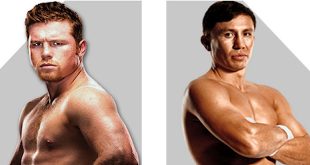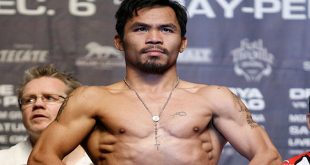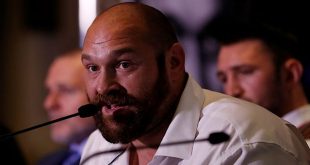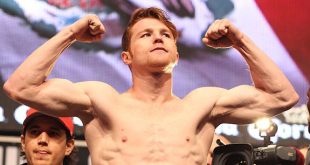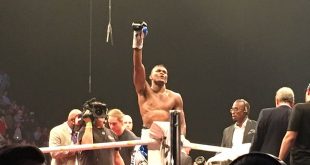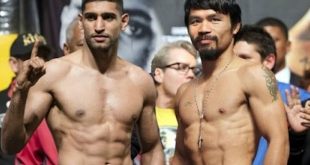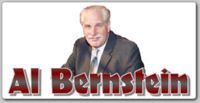 “This Is Not Time For Humor!”
“This Is Not Time For Humor!”
Imagine, if you will, this scene. In a slightly run down urban neighborhood, a huge truck with an ESPN logo on it is parked behind a concert venue.
Several police cars surround the truck and officers exit their vehicles and approach the truck very carefully. They have already called for back up because they believe a robbery might be in progress.
The officers have no idea what the label “ESPN” means, and so they figure it’s some kind of cover to look like a real business. They deduce that equipment or furniture is being taken from the concert venue and put into the truck by the thieves.
They carefully enter the vehicle only to discover it is a television production truck with a now startled crew working inside it. A nervous producer tries to convince the skeptical police that this is all part of an all-sports network and they are there to televise a sports event that evening. The police finally accept this is “some kind” of television event, even if they still don’t know what ESPN means.
This sound like a twilight zone episode set in some alternative universe to ours. But, as delightful as it might be to think there is a parallel universe that has not yet been sullied by Stephen A. Smith’s commentaries or the Around The Horn show, that’s not where this all took place.
All of this really happened right here in 1980, in our universe, on planet earth, in a little place called Chicago, Illinois.
The television truck was there to do one of the early shows in the Top Rank Boxing Series on ESPN, when police did, in fact, assume something criminal was going on and acted as described above.
These police officers could be excused if they didn’t know what ESPN stood for, since none of the city of Chicago was yet wired for cable, and ESPN was only in a small fraction of the homes nationally.
So, as far as they knew, ESPN could have been Dan Quayle’s attempt at spelling the acronym for Extra Sensory Perception.
In a postscript to this incident, there was still one obstacle to getting the show on the air that night. The police said that there was a “special parking permit” required for the truck to remain there—a permit that required several days to obtain.
The operations manager had never heard of such a permit and seemed amazed and horrified at all this. Well, I was new to network sportscasting, but not new to Chicago—I was a lifelong resident. So, I told the operations person that it seemed to me that the police were strongly suggesting that there might be some “alternative” way of handling this situation.
It turned out I was correct, an agreement was reached, the truck stayed, and the show went on. To this day, I’m not quite sure how this “alternative” solution was listed on the ESPN expense report.
The network was certainly in it’s embryonic stages back then, but the Top Rank Boxing series was ESPN’s most watched series. How many people were watching? Well, the figure was probably somewhere in between the number of children Evander Holyfield has fathered out of wedlock and the number of lawsuits annually filed against Don King. In other words, a big number, but not big by television standards.
So, we knew SOMEBODY was watching, and we had to get on the air. Did I say “we”? Well, yes, I was part of this merry band of television pioneers who were inventing cable television as we went along. After all, there had never been a 24 hour all-sports television network before. And there we were trying to televise live sporting events on a budget of somewhere around $4.95 per event, give or take a few cents.
Those of you who are under 30 years of age are probably finding all this a little hard to accept. How could there ever have been a time when ESPN was less than an empire? Now we are accustomed to the ESPN brand on 5 television networks, a massive radio network, a national magazine, a website that gets millions of hits, themed restaurants around the country and products that even include an ESPN cell phone.
All of this is a far cry from ESPN’s humble beginnings in 1980. At the 1981 ESPN Christmas party, for instance, there were less than 200 people on hand at the glamorous Holiday Inn in Plainville, Connecticut. At the end of the evening, Dick Vitale and I picked out the top two winning raffle tickets. What were those big prizes? They were two 24 inch black and white televisions. I kid you not.
Police intervention was only one of many barriers we faced in getting our shows on the air cleanly and off the air with some sense of dignity. ESPN was to television what MASH units are to hospitals. Since many of us were as new to network television as our product was, we didn’t know any better, so we just worked hard to overcome these obstacles.
In 1981, we were doing a boxing show from the University of Illinois-Chicago Circle campus— in a gym that would normally never have boxing inside it, so the ring had to be imported and constructed. We were about 5 minutes away from going on the air live, when we noticed that the ring had not yet been completed.
This apparently was one of those thorny little details that somehow slipped through the cracks. Up in the ring was the local promoter, Ernie Terrell, a former heavyweight champion, helping the crew finish putting the ring together. He started out in his business suit, but soon both jacket and tie were shed as desperation and perspiration were added.
When the clock struck 8 and Sal Marchiano and I were welcoming our viewers live at ringside, Ernie (now with shirttails hanging and sweat pouring) and his intrepid band of men were working feverishly on the ring in the background.
Sal and I were done with the content we had planned and the producer nervously told us to keep talking. About five minutes later, we were still talking and had pretty much run out of pertinent boxing topics— I think foreign policy might have been next. And still the ring was incomplete.
Our stage manager yelled to Ernie, “the producer says we are starting the show NOW, no matter what. So get your men out of the ring.” Ernie looked perplexed and worried, which pretty much describes Ernie’s normal state, but this time it was REAL worry.
To be sure, no one seemed certain that the ring was secure and ready for two hours of big men bouncing around in it. We trudged forward anyway and all through the show we all hoped no boxer would fall down through the middle of the ring. This might have been a first in boxing, a fatality caused not by the innate violence of the sport, but by faulty construction. We dodged this bullet as we would so many others on that series over the years.
A microcosm of all these early issues came in a show in Miami in 1982 when the truck ESPN rented blew a tire when it tried to park the day of show, most of the tape machines inside the truck were defective, the power cables would not reach as they were supposed to the arena and finally no phone lines were installed.
To solve the last problem, the creative producer had to steal phone lines from a nearby construction site—which, if I’m not mistaken is a federal offense. But, the punishment for that was nothing compared to NOT GETTING ON THE AIR. It was 20 minutes before this was to start when a technician made a harmless joke to the producer, who shot back, “hey, this is no time for humor.”
This young producer went on to become a big executive at ESPN and that statement was one of many things he would end up being wrong about. In 27 years around sports and television I have found that intentional or not, it’s almost always time for humor.
* * *
I am looking forward to seeing a lot of boxing fans this weekend at Bally’s Atlantic City where I will be joined by boxing personalities such as Joe Frazier, Gerry Cooney, Vinnie Pazienza, women boxers Maureen Shea and Chika Nakimura as well as fellow broadcasters Gus Johnson and Dave Bontempo at Smokin Joe Frazier’s Sportzbox.
This unique event brings together people from the world of sports and entertainment. Among the show business personalities on hand will be Joe Piscopo, Bobby Rydell and Vincent Pastore of the Sopranos. I will host a game show called Champs and Stars, where the athletes and performers compete against each other.
For more information on the event itself and how to purchase tickets, go to www.SportzBox.com.
 Boxing News Boxing News
Boxing News Boxing News
